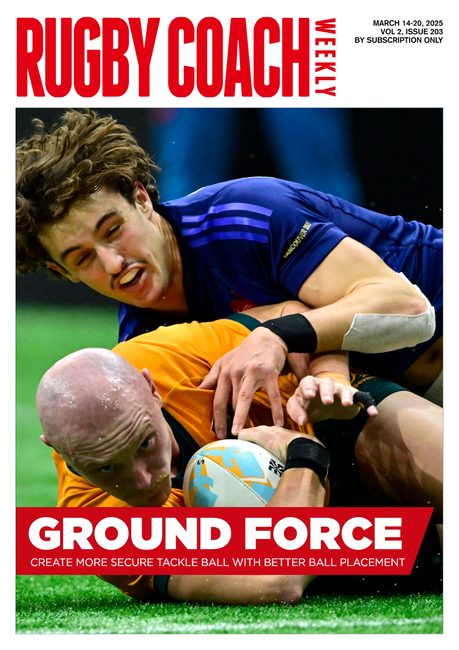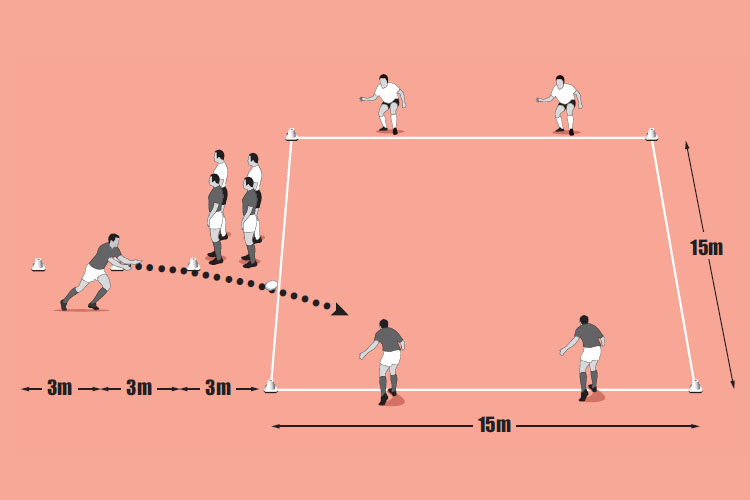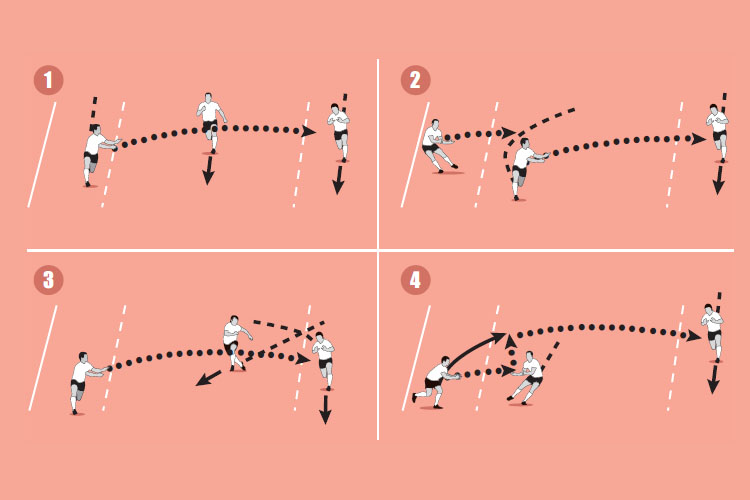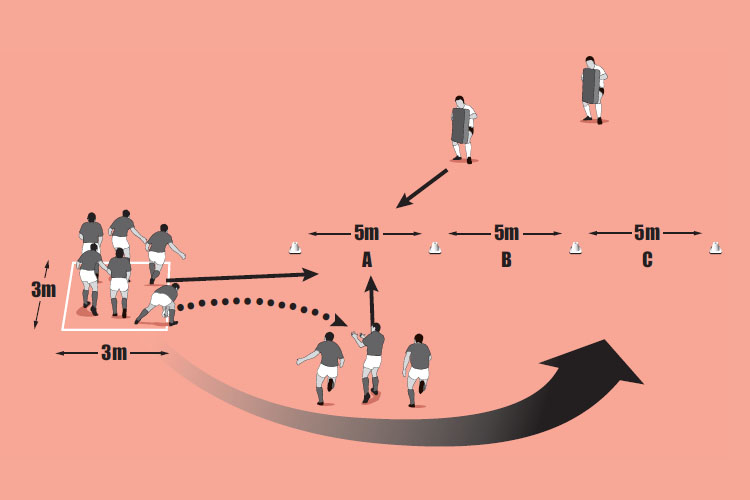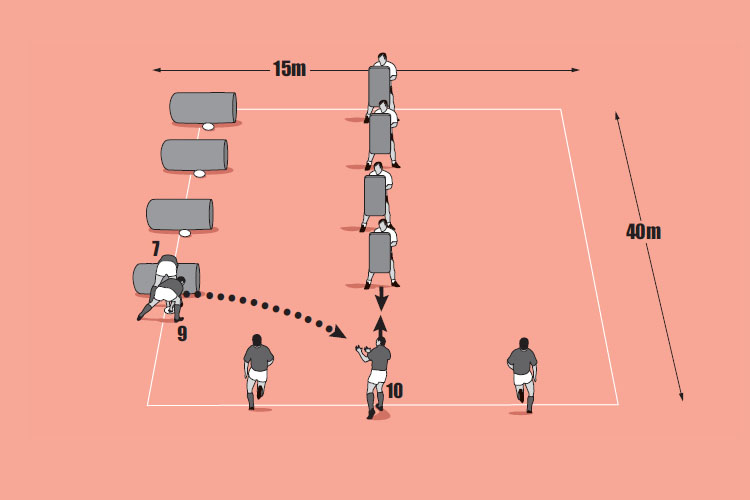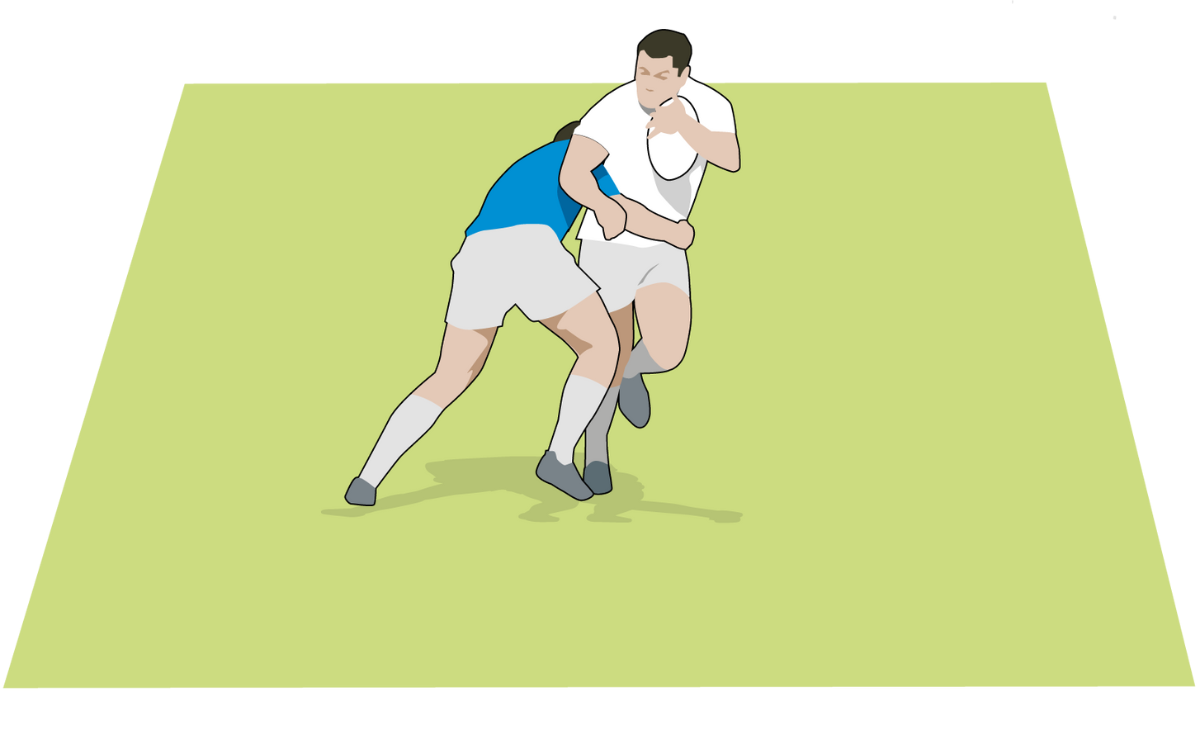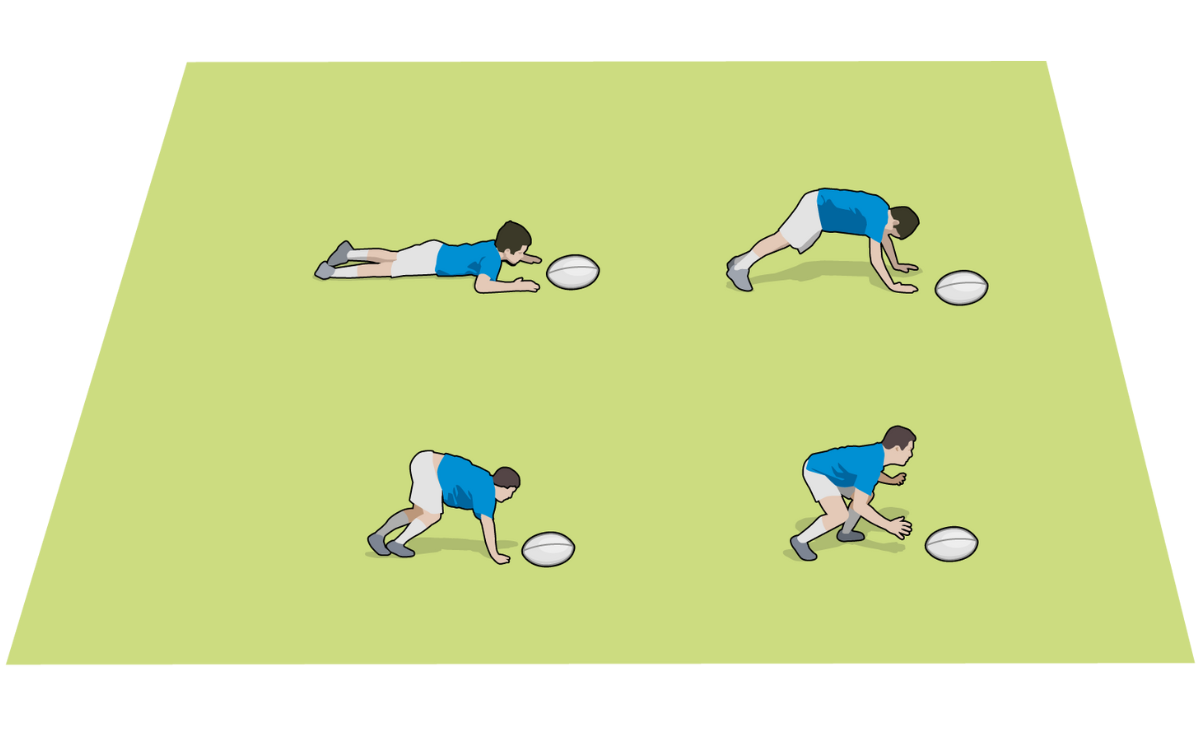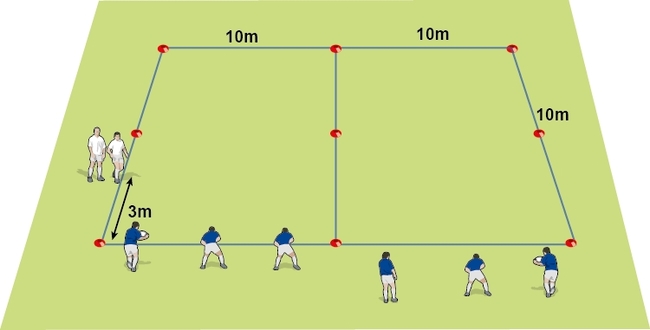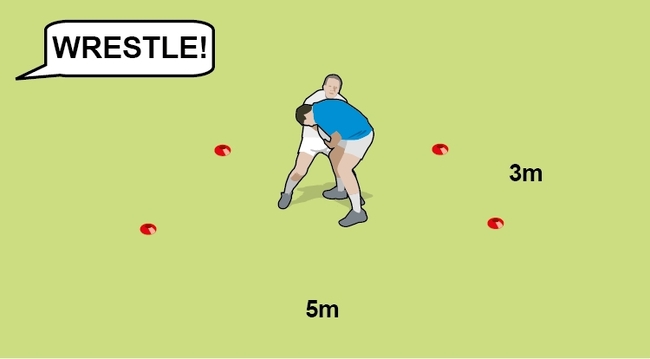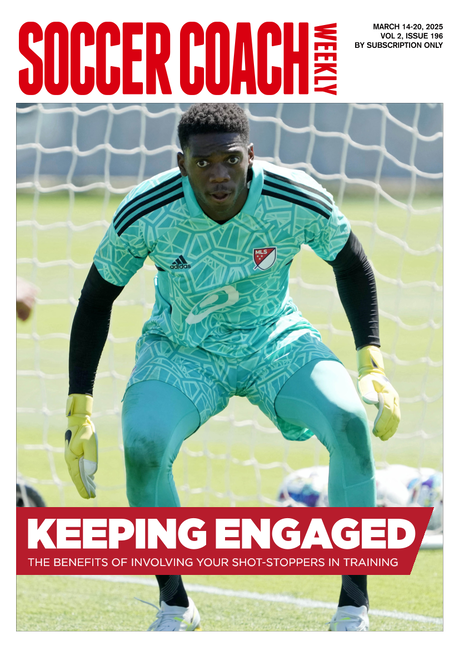Three point stance
The three point stance is used in American Football, where getting low and exploding forward is essential for players in the front line. Defending the channels close to a ruck is very similar. Players need to be ready to go but patient, waiting for the ball to be played. It’s then a race to get to the gain line and stop the attack.
Warm up time: 7-10
Session time: 9-12
Development time: 9-12
Game time: 15-20
Warm down time: 7-10
What to think about
Slow possession from rucks is difficult for teams to attack from. Generally teams will try to speed up slow ball by picking and driving close to the breakdown with close support players. Tackling offensively at the sides of the ruck can prevent teams from turning slow ball into quick ball. To do this the defenders close to the ruck have to get low and explode forward as soon as the ball is played. The defenders’ role is to knock back runners who come into their channels. They have to stop the runner getting over the gain line so his support players don’t have forward momentum.set-up
- Get in low powerful positions when defending close to the ruck.
- Watch the ball closely and move forward quickly as soon as it is played.
- Tackle the ball carrier in pairs with strong offensive tackles.
What you get your players to do
Put four defenders on the fringes of a ruck represented by four cones. Stand three attackers directly behind the ruck holding ruck pads. On your signal (from behind the defenders) the first attacker chooses a side and runs at the defenders. They knock him back as a pair. The defenders then reset as quickly as possible and the next attacker goes. The same four players defend six attacks and then swap over.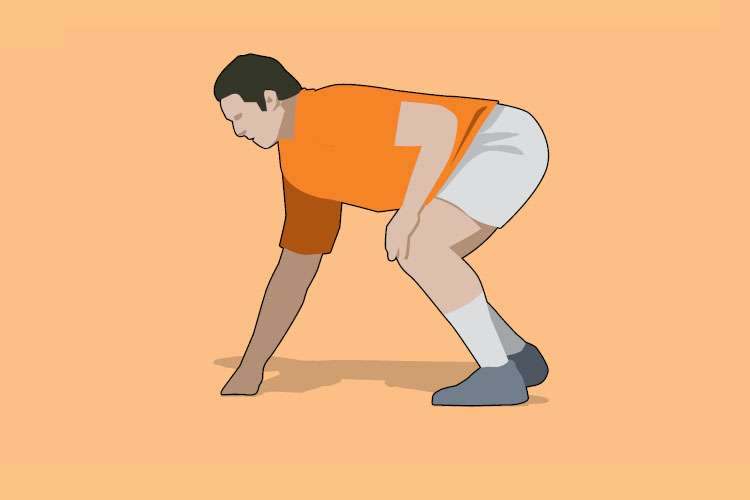
Development
- Remove the ruck pads from the attacking players and get them carrying a ball instead.
- Add an attacking scrum half who can pop a pass to a runner or run himself.
- Let the tackle develop into another phase of play, where the attackers have to win the ball and the defenders have to get in position to defend another phase.
Related Files
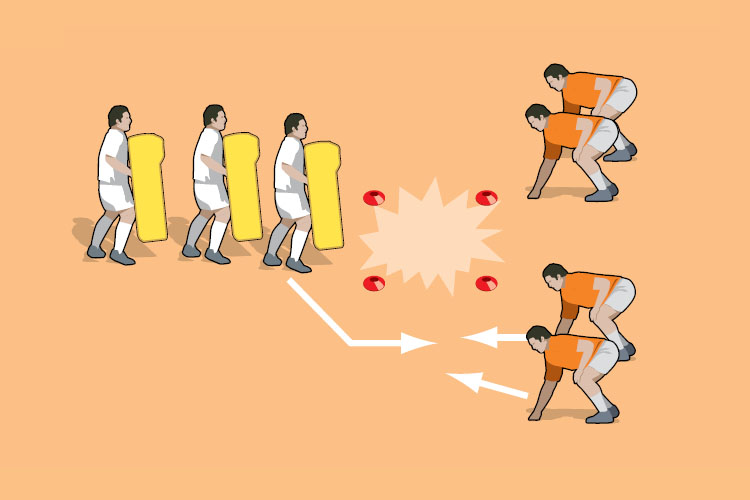
Game situation
Split into five attackers playing full contact rugby against seven defenders from various different starting positions. Run the game for three or four phases. Tell the attackers whether to attack close to the ruck or wider. The defending team must always have four defenders close to the ruck in a three point stance. The defenders can’t compete for the ball at the tackle and must focus on realigning quickly ready for the next phase.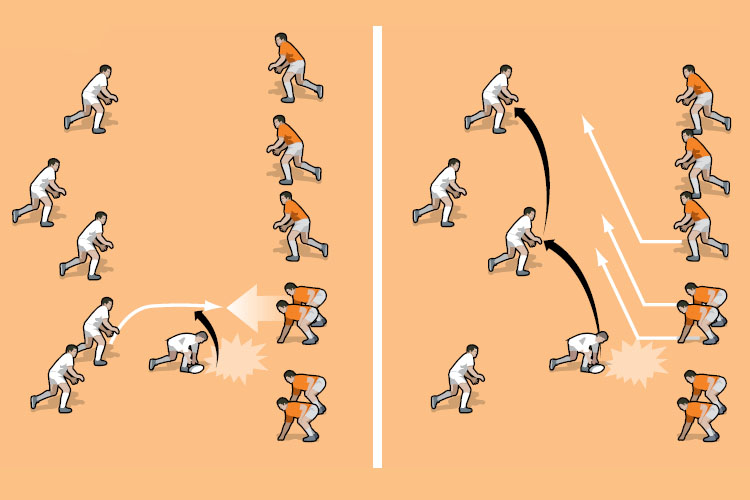
What to call out
- “Explode forward as soon as the runner moves”
- “Get lower than the attacking player”
- “Hit low and drive up through the tackle”
- “Complete the tackle and reset quickly”
Newsletter Sign Up
Coaches Testimonials

Gerald Kearney, Downtown Las Vegas Soccer Club

Paul Butler, Florida, USA

Rick Shields, Springboro, USA

Tony Green, Pierrefonds Titans, Quebec, Canada
Subscribe Today
Be a more effective, more successful rugby coach
In a recent survey 89% of subscribers said Rugby Coach Weekly makes them more confident, 91% said Rugby Coach Weekly makes them a more effective coach and 93% said Rugby Coach Weekly makes them more inspired.
Get Weekly Inspiration
All the latest techniques and approaches
Rugby Coach Weekly offers proven and easy to use rugby drills, coaching sessions, practice plans, small-sided games, warm-ups, training tips and advice.
We've been at the cutting edge of rugby coaching since we launched in 2005, creating resources for the grassroots youth coach, following best practice from around the world and insights from the professional game.


